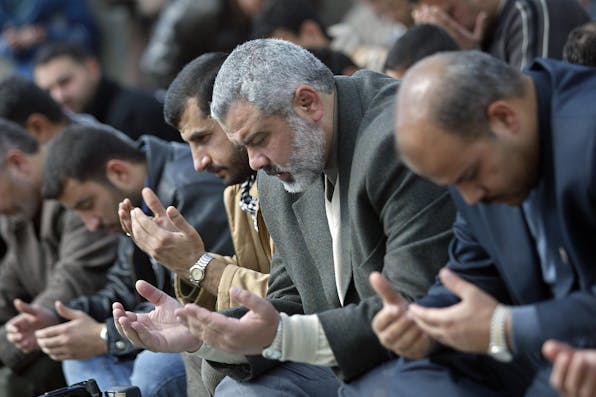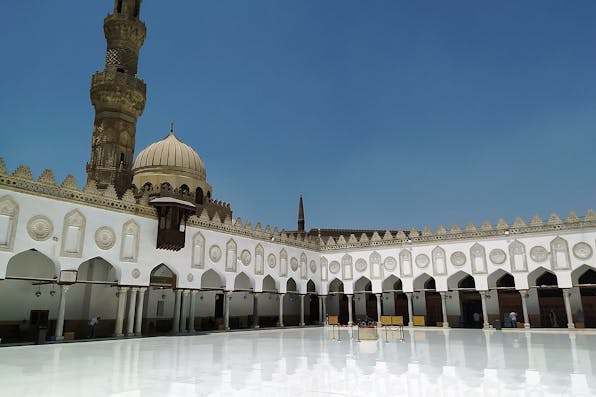
July 2025
The Enchantment of the Arab Mind
Today’s Islamism promises authenticity but is postmodern in form, postcolonial in posture, and pretends to retrieve the sacred through the techniques of the profane.
When, in the aftermath of the September 11 attacks and the onset of the Global War on Terror, the great historian Bernard Lewis asked, “What went wrong?,” he gave voice to the defining anxiety about the Middle East. His 2002 book of that name distilled a lifetime of scholarship into a single question that seemed to cut through the confusions of both postcolonial apologetics and culturally despairing self-pity. Lewis articulated a mystery: how did a part of the world that once stood at the pinnacle of science, law, and geopolitical influence fall into authoritarianism, stagnation, terror, and despair? What had derailed the heirs of Ibn Rushd and Ibn Sinna, of al-Farabi and Ibn Khaldun?
Lewis’s question did not emerge in a vacuum. It was posed when the West, its illusions of post-cold-war harmony shattered, was forced to confront the possibility that a vast swath of the world harbored deep, nihilistic hatred for it. The proclamations of al-Qaeda declared not just a list of grievances but, supposedly, the final verdict of God: the West, and America in particular, are condemned. For many, this hatred was inexplicable. The jihadist was seen as a medieval relic or a nihilistic anomaly. Lewis offered a framework that gave this rage coherence: it was the fury of a civilization that had fallen behind and, shamed by the remembrance of its former glory, blamed its decline on external forces. In one short volume, he translated the blood and fire of jihadism into the language of historical development, institutional failure, and cultural woundedness.
Lewis’s answer, classically liberal and empirically grounded, portrayed an Arab-Muslim word that combined internal sclerosis and external resistance. He argued that it failed to modernize, not only technologically, but institutionally and epistemically. While the West underwent transformations in science, law, individual liberty, and self-critique, the Islamic world retreated behind a wall of tradition. Its religious authorities discouraged innovation (bid’a), its rulers suppressed dissent, and its educational institutions turned inward. A civilization that had once absorbed Hellenic rationalism and produced global centers of learning had grown suspicious of inquiry and resentful of modernity. The result was intellectual closure, political authoritarianism, and a crisis of legitimacy that endures to this day.
Responses to July ’s Essay

July 2025
Jihadism Is a Modern Philosophy, but Its Islamic Roots Run Deep
By Daniel Sonnenfeld
July 2025
Hamas Didn’t Need to Learn Violence from Frantz Fanon
By Martin Kramer
July 2025
Today’s Jihadism Uses Ancient Vocabulary, but Its Ideas Are Modern
By Hussein Aboubakr Mansour
July 2025
How Islamism Took Over the Middle East
By Ze'ev Maghen, Hussein Aboubakr Mansour, Bernard Haykel